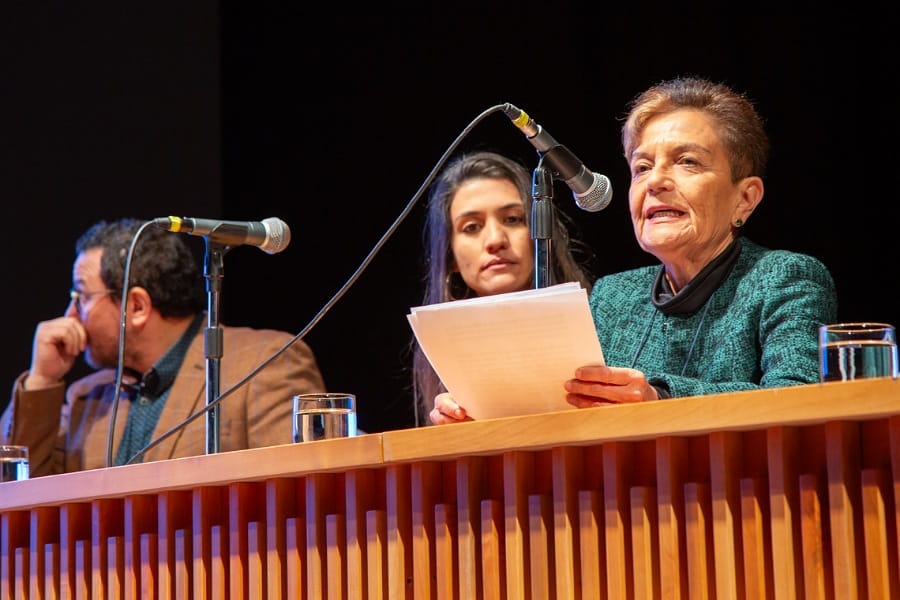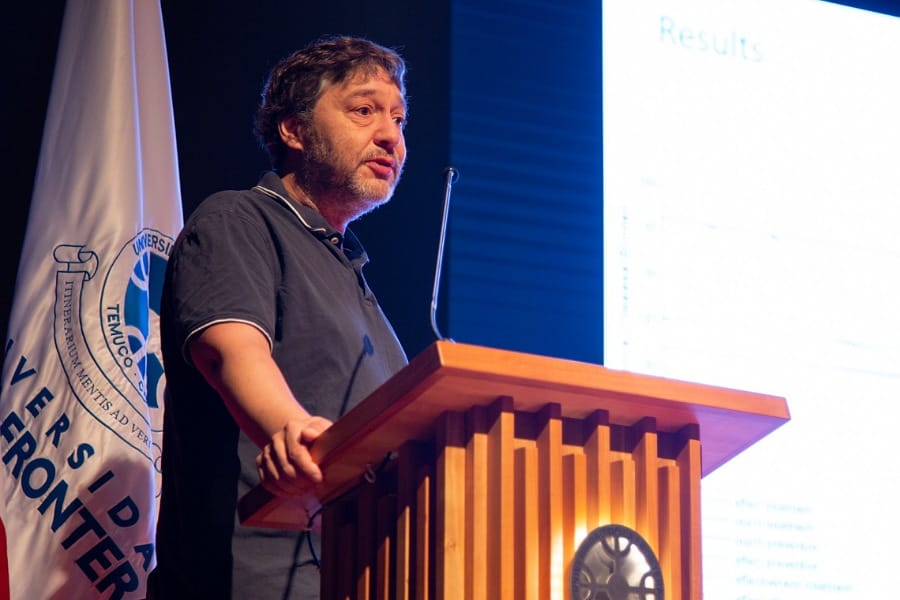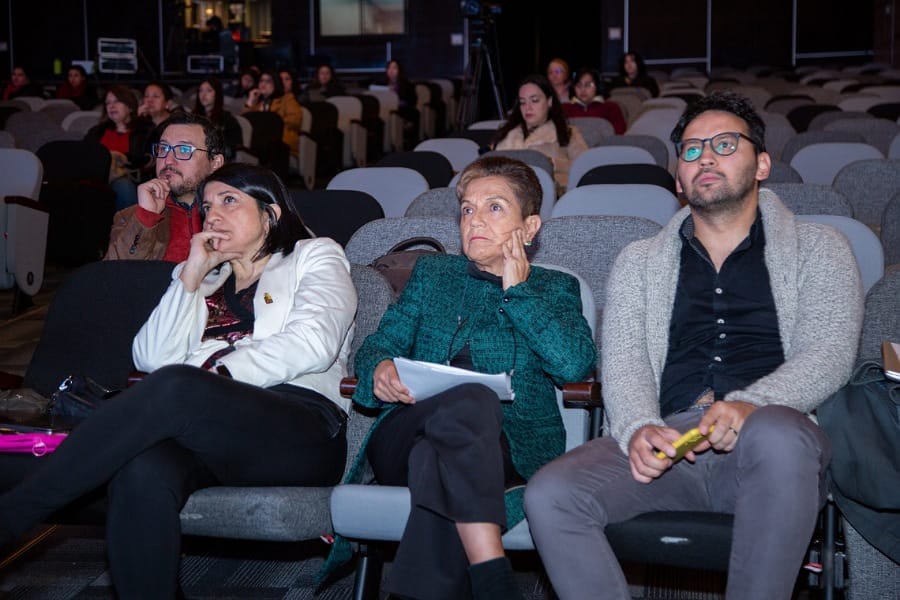|
AThe seminar was organised by the International Network for Digital Mental Health Promotion and Development of the Millennium Institute for Research in Depression and Personality (MIDAP) and took place at the Aula Magna of Universidad de La Frontera, providing an opportunity for updating and knowledge exchange on digital mental health. |
The increasing number of remote medical consultations during the COVID-19 pandemic was the starting point to analyse the challenges and opportunities in the use of digital technologies to reduce the gaps in mental health care. The international seminar brought national and international experts together at the Aula Magna of Universidad de La Frontera (UFRO), in round table sessions, interventions, and various presentations. The seminar “Digital Mental Health: Challenges and Opportunities in Chile” was organised by the International Network for Digital Mental Health Promotion and Development of the Millennium Institute for Research in Depression and Personality (MIDAP), a project financed by the Chilean National Agency for Research and Development (ANID). “It is important to have access – between not having and having digital access, it is always better to have a certain mental health support. In the particular case of Chile, which is a large and narrow country, access is difficult. It is very important to consider this fact so that all people throughout the country can have access,” explained Markus Moessner, Ph.D. in Psychology and associate researcher at the Centre for Psychotherapy Research, University Hospital Heidelberg (Germany), who was in charge of opening the seminar. According to Ricardo Araya, psychiatrist and academic at King’s College London and director of the Centre for Global Mental Health, the experience shows that there are many difficulties in meeting the needs of the population in terms of mental health solutions. In this sense, the digital era and technology allow to move forward and to close the treatment gaps. “The pandemic left us some positive things: it forced us to think about mental health services in terms of delivering remote help since it was not possible to meet in person. It was a stimulus to rethink the digital era and to make progress with its development. Things that were questioned before are now normal, such as talking to a doctor through a screen, which was not very accepted before the pandemic, but now it is very current, feasible and many patients even prefer it,” added Ricardo Araya, who also won the National Prize for Applied Sciences and Technology in 2022. ROUND TABLE DISCUSSIONS “We are very pleased with this activity organised by MIDAP and UFRO. It is always good to invite top-level guests and to be able to share presentations of this type with our students and with professionals from our region. You always have to try to update your knowledge and in this case, we have the possibility to get together with professionals from several universities. It proves the potential of collaborative work on a problem such as mental health, which is very important to solve in Chile,” explained the UFRO-MIDAP researcher Dr. Manuel Ortiz. He pointed out that future research on digital mental health could study and analyse the reasons why people access remote care options more or less frequently. “Remote mental health care is a viable, effective alternative for people to access care. We have to consider that we have a lot of technology, which we are more familiar with and which eventually can make this easier when being well used by the people,” Dr. Manuel Ortiz concluded. Escrito por: UFRO Communications Office
|







